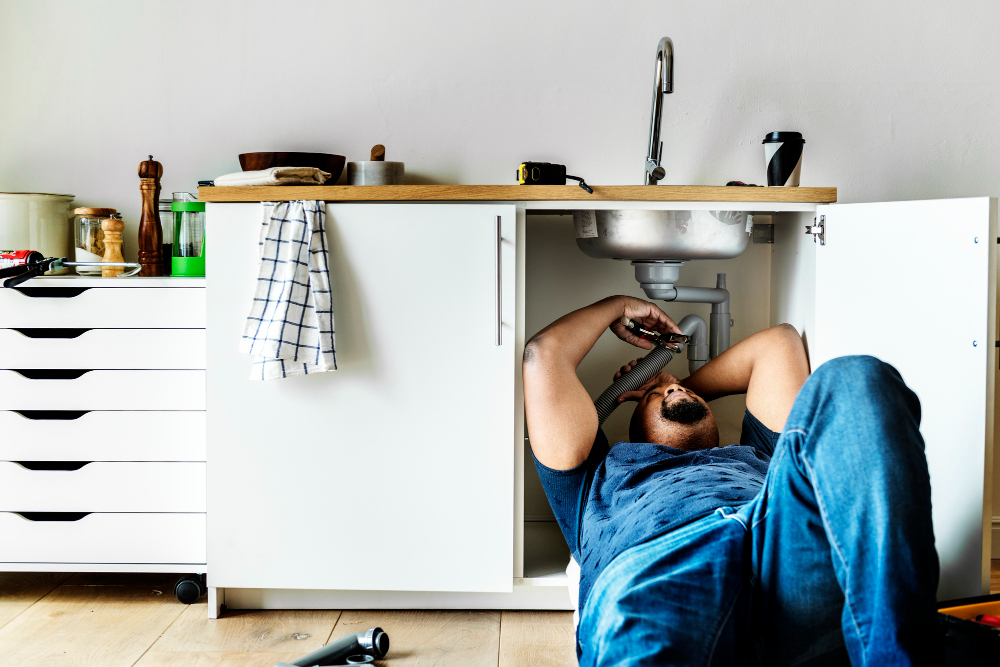 (888) 979-7969
(888) 979-7969
 (888) 979-7969
(888) 979-7969

Water damage isn't just an inconvenience; it's a homeowner's nightmare that can lead to severe structural issues and health hazards. For those who have never experienced it, the sudden onset of water damage can be a crushing blow. However, knowing how to respond can make the difference between a manageable situation and a catastrophic loss. Whether you're facing a burst pipe, a flooded basement, or the aftermath of a storm, understanding the immediate steps to take can help you mitigate the damage and ensure the safety of your home and family.
In this comprehensive guide, we'll walk through the essential actions to take when you first notice water damage in your home. From immediate safety protocols to handling the insurance process, here's what you need to know to stay ahead of the damage.
As a homeowner, the safety of your family and yourself must be the immediate priority when water damage occurs. The first step is to assess any potential risks and take the necessary precautions.
Water and electricity don't mix. If it's safe to do so, shut off the power in any affected areas to prevent electrocution. If you're unsure or uneasy about the conditions, it's best to wait for a professional to safely handle these crucial steps.
If the cause of the water damage is a burst pipe, turning off the main water supply to the house can prevent further flooding. For other sources, such as a damaged roof, temporarily patching the leak or moving items out of the way can help mitigate immediate damage.
Assess the structural integrity of the affected areas. Water damage can weaken floors and walls, presenting a risk of collapse. Be cautious of any sagging ceilings or floors, and keep out of rooms where structural elements could be compromised.
Once you've ensured the safety of your home, it's time to move valuables to a dry area. Furniture, appliances, and personal belongings should be relocated to a safe spot to prevent further water exposure and damage.
The first 48 hours after water damage are critical. Mold and mildew can begin to grow within 24 to 48 hours, so quick action is necessary to start the drying process.
For standing water, use a wet/dry vacuum to remove as much water as possible. This will help with the drying process and prevent mold growth.
Use fans and dehumidifiers to speed up the drying process. It's essential to dry not only the visible water but also any damp areas within walls or under flooring to prevent hidden damage. Open windows and doors to promote air circulation.
Use a non-toxic disinfectant to sanitize the affected areas. This will help prevent the growth of bacteria and mold. Avoid bleach, as it can be harmful if inhaled and can damage certain materials.
Despite your best efforts, some instances of water damage require professional assistance. If the damage is extensive, or if there is a risk of mold or structural issues, it's best to call in a professional restoration service.
A professional water damage restoration service has the expertise and equipment to handle more severe water damage. They can properly assess the situation, extract water, and ensure thorough drying and disinfection of the area.
Take photos and videos of the water damage before any cleanup efforts begin. This documentation will be crucial for insurance claims and for the restoration company to assess the extent of the damage.
Notify your insurance company as soon as possible. They can provide guidance on the claims process and may also recommend local restoration companies that they work with.
Dealing with insurance can be a complex process, but it's a critical part of recovering from water damage. Here are steps to navigate the claims process effectively:
Understand your policy coverage before making a claim. Some types of water damage may not be covered, such as flooding or negligence-related incidents.
Contact your insurance company to start the claims process. They will likely ask for information about the damage, so be prepared to provide details about the cause, when it occurred, and the extent of the damage.
An insurance loss adjuster in Orlando, FL will visit your home to assess the damage. Be present during this inspection to ensure all damage is noted, including any potential hidden damage.
You have the right to get your own estimates for the repair work. Provide these to your insurance company to ensure you're getting a fair settlement.
Once the water damage has been mitigated and your home is on the road to recovery, it's time to focus on prevention. Here are some steps to minimize the risk of future water damage:
Keep up with routine maintenance, such as inspecting and repairing roofs, cleaning gutters, and insulating pipes to prevent freezing and bursting.
Be aware of potential trouble spots in your home, such as areas prone to leaks or where water could collect. Address any issues as soon as you notice them to prevent further damage.
Consider upgrading appliances or systems that are at the end of their lifespan. For example, if your water heater is old, replacing it with a newer, more efficient model can prevent future water damage.
In the face of water damage, time is of the essence. By following the steps outlined above, you can minimize the impact on your home and belongings. Remember, safety first, efficient drying, professional assistance as needed, thorough communication with your insurance company, and a focus on future prevention are key components to managing water damage effectively.
If you're in the unfortunate situation of dealing with water damage and need professional assistance, or if you have questions about navigating the insurance process, don't hesitate to contact Ultra Property Damage, your trusted insurance loss adjuster in Orlando, FL. Our experienced team is dedicated to helping homeowners recover from water damage and get back on their feet.